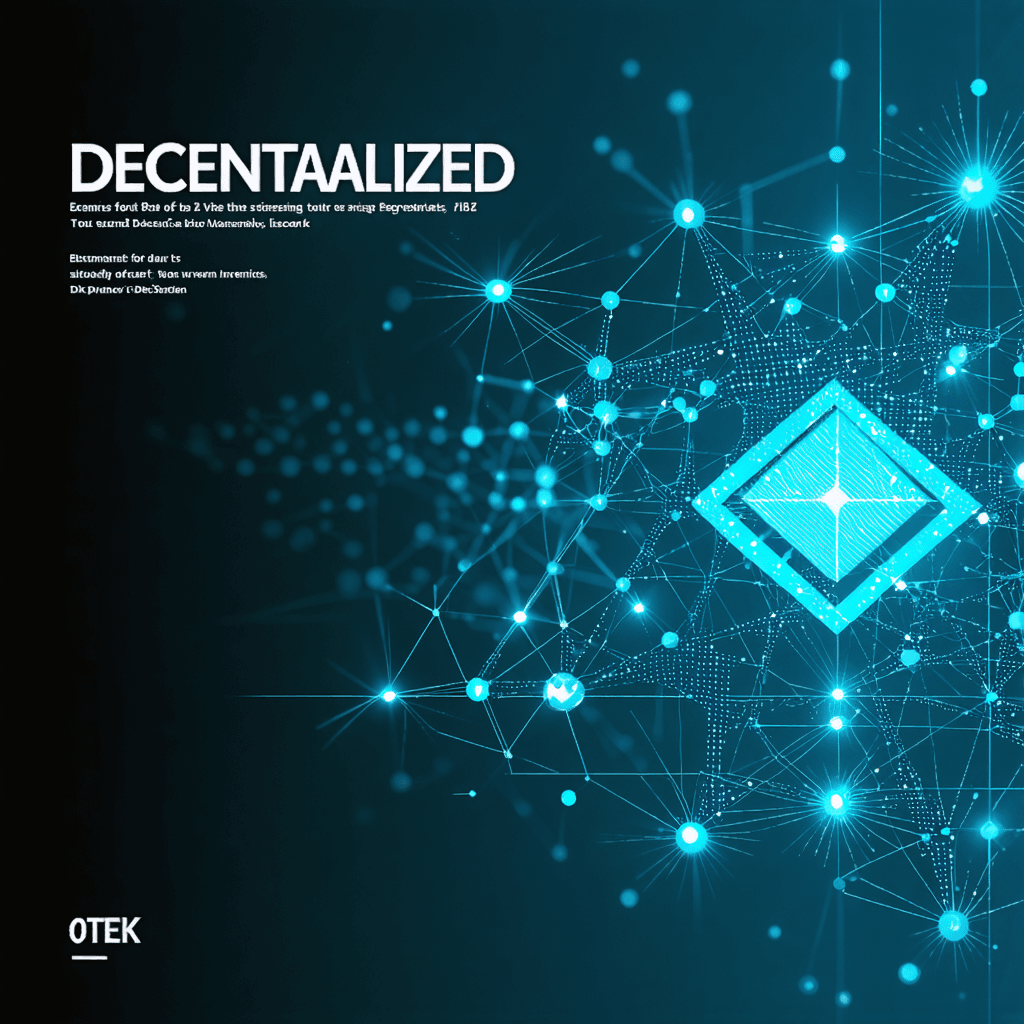Mastering Decentralized Problem-Solving: A Mind-Shift Guide to Secure Information Management
In today's rapidly evolving digital landscape, the traditional centralized approach to problem-solving and information management is becoming increasingly obsolete. Organizations must adapt to new paradigms that embrace decentralized methodologies, ensuring both security and efficiency in their operations.
Understanding the Decentralized Mindset
The shift from centralized to decentralized problem-solving requires more than just technological adaptation—it demands a fundamental change in how we think about and approach challenges. This mind-shift begins with understanding that solutions don't always need to flow from top to bottom; instead, they can emerge from various points within an organization's ecosystem.
Key Principles of Decentralized Problem-Solving
Distributed Authority
- Empowering teams at different levels
- Encouraging autonomous decision-making
- Fostering responsibility and ownership
Collaborative Intelligence
- Leveraging collective expertise
- Breaking down departmental silos
- Creating cross-functional solution networks
Adaptive Response Systems
- Implementing flexible frameworks
- Enabling rapid iteration
- Supporting real-time adjustments
Secure Information Management in a Decentralized Environment
Security remains paramount in decentralized systems. The challenge lies in maintaining robust protection while enabling seamless information flow across distributed networks.
Essential Security Components
1. Access Control Mechanisms
- Role-based access management
- Multi-factor authentication protocols
- Dynamic permission structures
2. Data Encryption Standards
- End-to-end encryption
- Zero-knowledge proof systems
- Blockchain-based verification
3. Audit Trails and Monitoring
- Distributed logging systems
- Real-time activity monitoring
- Automated compliance checking
Implementing the Mind-Shift
Phase 1: Assessment and Planning
Begin by evaluating your current organizational structure and identifying areas where decentralization can provide the most significant impact. Consider:
- Existing workflow bottlenecks
- Communication patterns
- Decision-making processes
- Security vulnerabilities
Phase 2: Technology Integration
Select and implement technologies that support decentralized operations while maintaining security:
- Distributed ledger systems
- Secure communication platforms
- Collaborative workflow tools
- Encryption frameworks
Phase 3: Cultural Transformation
The success of decentralized problem-solving relies heavily on cultural acceptance and adaptation:
Education and Training
- Regular workshops and seminars
- Hands-on practice sessions
- Continuous learning programs
Change Management
- Clear communication strategies
- Milestone-based implementation
- Regular feedback loops
Best Practices for Sustainable Implementation
1. Start Small, Scale Smart
- Begin with pilot projects
- Document learnings and adjustments
- Expand based on success metrics
2. Maintain Security Focus
- Regular security audits
- Updated threat assessments
- Proactive vulnerability management
3. Foster Innovation and Adaptation
- Encourage experimentation
- Reward creative solutions
- Share success stories
Measuring Success
Implement key performance indicators (KPIs) to track the effectiveness of your decentralized approach:
Operational Metrics
- Problem resolution time
- Decision-making efficiency
- Resource utilization
Security Metrics
- Security incident frequency
- Response time to threats
- Compliance adherence
Cultural Metrics
- Employee engagement
- Innovation adoption
- Collaboration levels
Overcoming Common Challenges
1. Resistance to Change
- Develop comprehensive change management strategies
- Provide clear benefits and incentives
- Create support systems for adaptation
2. Security Concerns
- Implement robust security frameworks
- Regular security awareness training
- Continuous monitoring and adjustment
3. Technical Integration
- Ensure compatibility with existing systems
- Provide adequate technical support
- Plan for scalability
Future-Proofing Your Approach
Stay ahead of the curve by:
Monitoring Trends
- Emerging technologies
- Security threats
- Industry best practices
Adapting Strategies
- Regular framework reviews
- Policy updates
- Technology upgrades
Investing in Development
- Team training
- Tool enhancement
- Process optimization
Conclusion
Mastering decentralized problem-solving and secure information management is crucial for modern organizations. By embracing this mind-shift, implementing proper security measures, and fostering a culture of distributed responsibility, organizations can build more resilient and efficient operations.
The journey toward decentralization requires commitment, patience, and continuous adaptation. However, the benefits of improved efficiency, enhanced security, and increased innovation make this transformation worthwhile.
Ready to transform your organization's approach to problem-solving and security? Explore our comprehensive courses and resources at 01TEK. Our expert-led programs will guide you through implementing decentralized methodologies while maintaining robust security measures. Visit 01TEK's Learning Portal to begin your journey toward mastering decentralized problem-solving.
I never perfected an invention that I did not think about in terms of the service it might give others… I find out what the world needs, then I proceed to invent.
Thomas Edison



